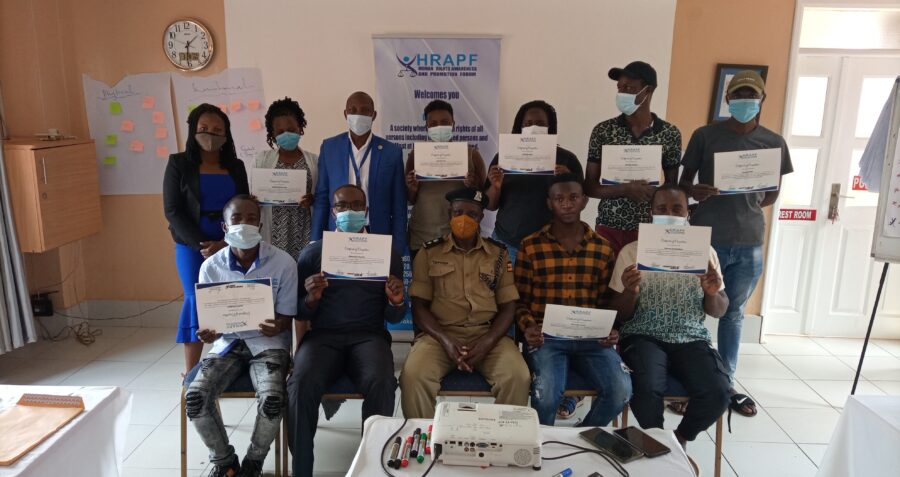Access to justice for sex workers and LGBT communities experiencing domestic violence

Key information
- Organisation: Human Rights Awareness and Prevention Forum (HRAPF)
- Country: Uganda
- Region: Eastern and Southern Africa
- Stage of innovation: Stage 3: Pilot
- Start date: 2020
- End date: 2021
- Type of innovation: Accountability innovation: new way of holding duty bearers to account
- Funder: Foreign and Commenwealth Development Office (FCDO)
Summary of intervention
Domestic violence is prevalent in Uganda, despite laws and policies aimed at protecting those at risk. Over half of married women report ever having experienced violence from a spouse, and over a third experienced violence in the past year. Very few cases are reported to police. This level of under-reporting and lack of access to justice is even worse for lesbian, gay, bisexual, transgender (LGBT+) people and sex workers due to added layers of criminalisation, stigma and discrimination. COVID-19 and Uganda’s national elections further exacerbated violence against these marginalised groups.
Until recently, the HRAPF legal aid clinic focused on responding to violations outside the domestic sphere — the most visible cases. Through the Zero Violence Project, HRAPF has transformed its ability to tackle domestic violence cases among sex workers and the LGBT community. Community-based paralegals were trained on legal frameworks governing domestic violence and how this applies to minority groups. They also built the skills to incorporate psychosocial support into their work. Awareness-raising sessions for sex workers and LGBT people have increased their knowledge of laws and policies related to domestic violence.
These interventions have resulted in more clients being able to identify violence and open up to lawyers and paralegals. Paralegals are now incorporating psychosocial support and counselling into their legal aid work to address the trauma and emotional stress inherent in many of these cases. They are already reporting that they understand cases better, can offer improved legal advice and are more confident they are taking the right legal steps for their clients
learnings
Going forward, communities are calling for more peer educators to encourage marginalised communities to access services.
next steps
Having completed the training, participants are using virtual spaces for further engagement, which is helping to maintain the community and to sustain an ongoing SOGIESC movement. WhatsApp platforms are enabling people to continue to engage on the compendium of GBV laws and to support each other.
For more information, read the Zero Violence leaflet on Transforming access to justice for marginalised communities facing domestic violence.

